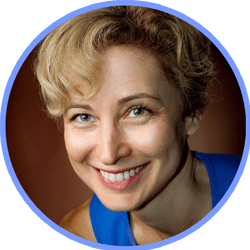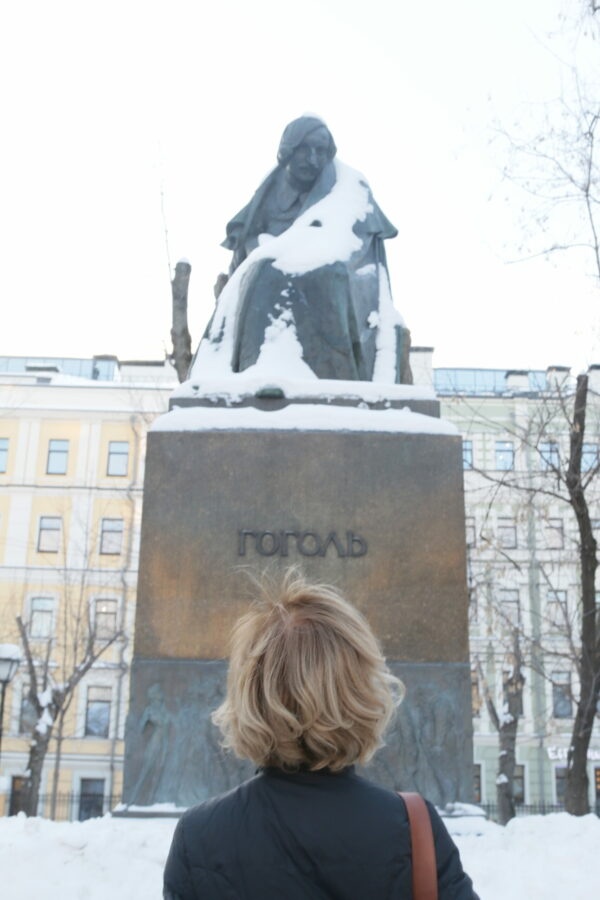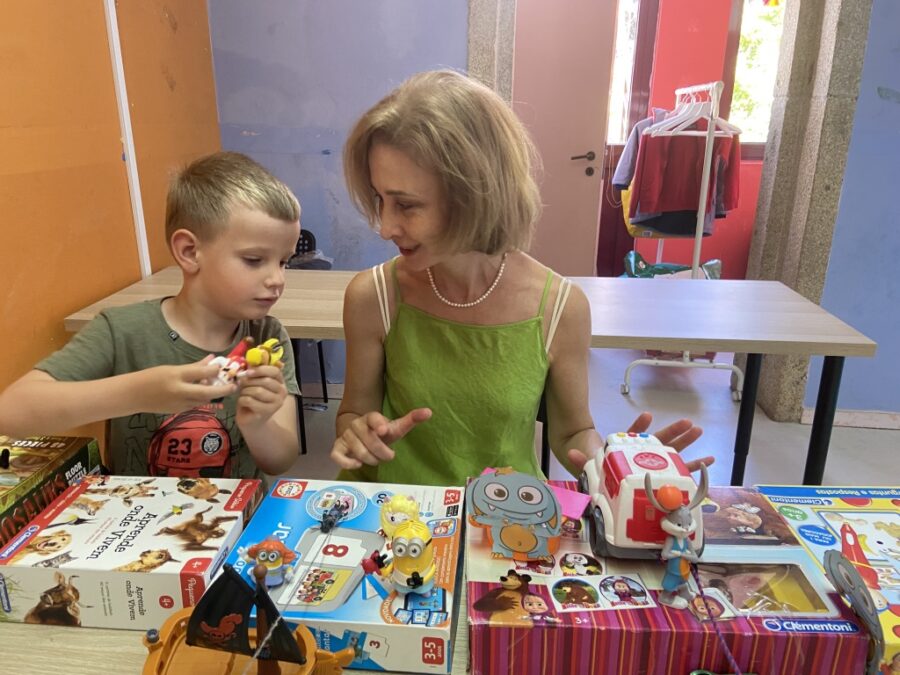Leaving Moscow
Demonstrations in February and early March saw policemen with batons running after protestors, not just shouting “this is not a permitted gathering, please go home”. They must had been instructed to arrest and guard in their windowless buses as many people as possible. Experienced activists believed that it is okay to get arrested, at least the world could see that we Russians try to protest. As for me, I realized I could not stay sane with “Z” supporters even if they were just frightened people whom I do not know personally. I made little leaflets that quoted my Ukrainian colleague who said that Russian attacks were not only on military targets. In those leaflets, I also explained my position: Stephan Bandera and Roman Shukhevich are not heroes but murderers I think, but this is something to discuss with Ukrainians after the war; now, the war must be stopped. I offered my leaflets to people in the street and in supermarkets.
Some days later, my dad asked me to delete my anti-war statements on Facebook saying that they were so afraid I would be in trouble with new state regulations agaist “fakes”.
I got ready and left very quickly, had neigther time nor courage to say good-bye to my parents. They were shocked when I called from Estonia.
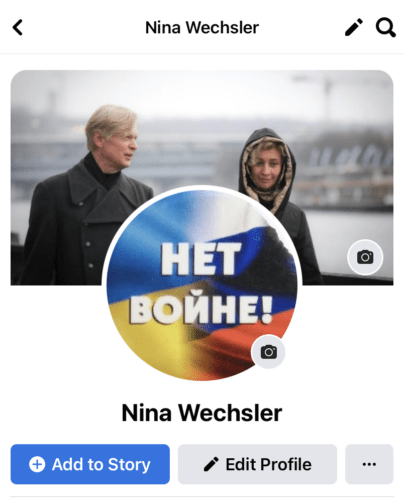
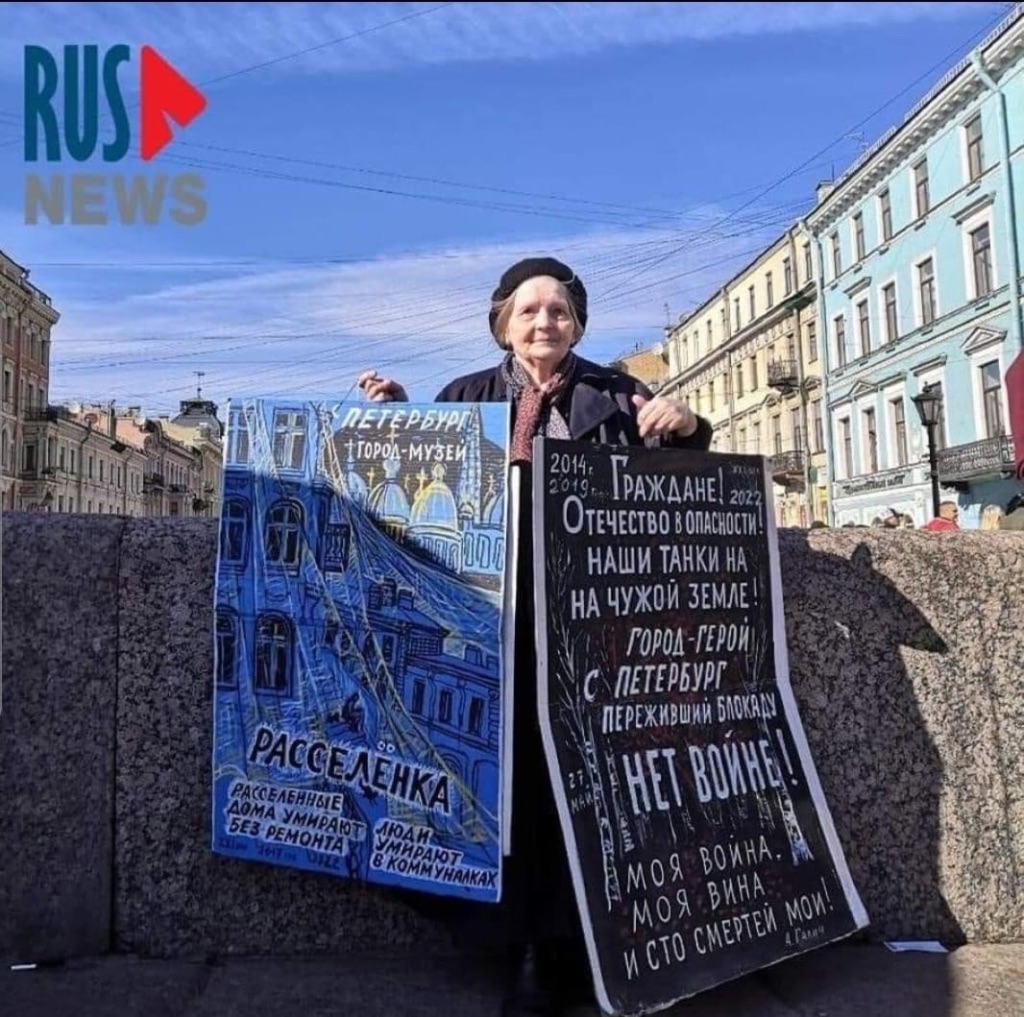
Estonia
The town of Narva was my first destination. I took a taxi from Pulkovo airport in Saint-Petersburg to Ivangorod, walked across the pedestrian bridge, showed my invitation for medical treatment in a spa hotel. Easy to say now, but those were days of shock and helplessness; everything seemed surreal.
Narva is on the border with Russia, most people speak Russian to each other there and I met some individuals who seemed to approve the war.
A hairdresser (to her colleague): “There has been too much of the European-“gay-ropean” staff here, at last the end will be put to it… it is good that MacDonalds is leaving, people will be shaken a bit and then back to normal”.
A taxi driver (to me): “You are saying Russia is an aggressor, now listen, you are a woman, you do not understand these things. Those ladies calling themselves “Soldier’s Mothers Committee”, what are they up to?” When I said they want their sons to live, not to perish as cannon fodder, the man asked “How do you think issues can get resolved then if boys don’t go to the war?” That was really sick, I thought.
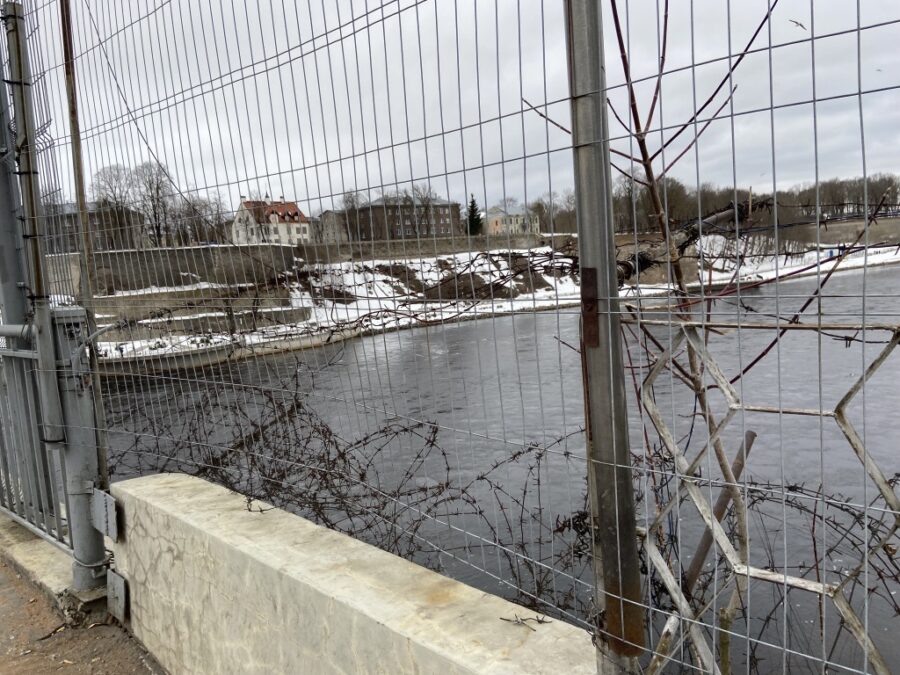
Estonia was cold, clean, crisp air, beautiful, quiet. Everything worked, everyone was polite and helpful. I needed help since my bank cards stopped working. A simple thing – we could not book our bus tickets to Tallinn, so a hotel receptionist did it for us using his bank card, and we gave him cash.
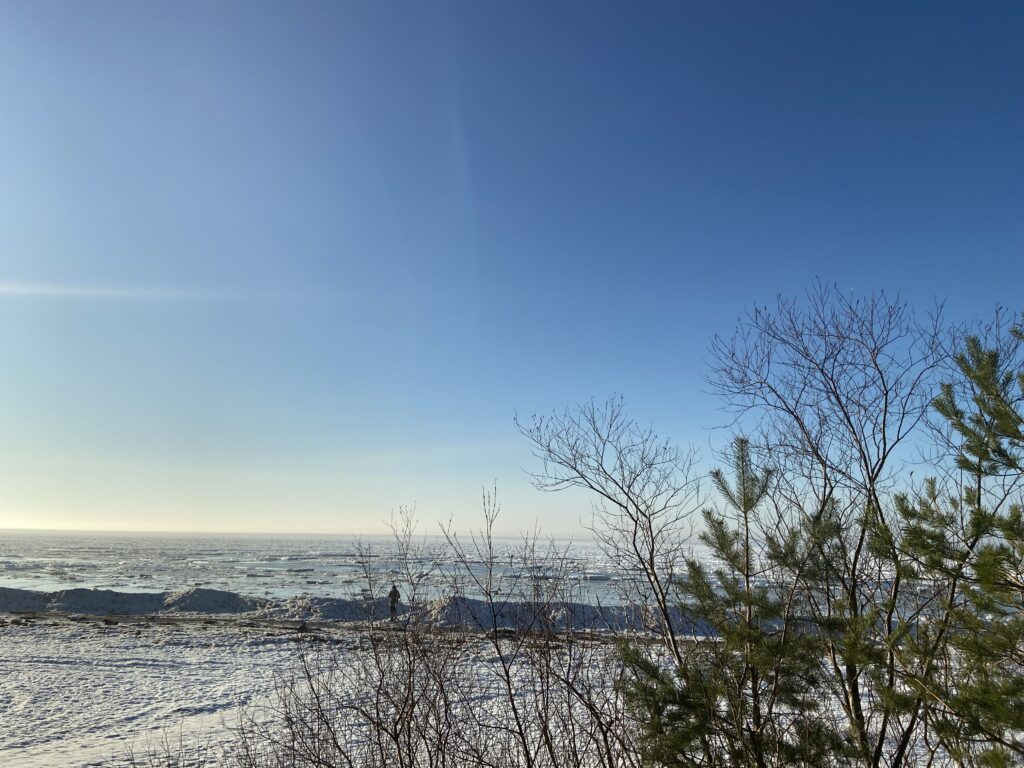
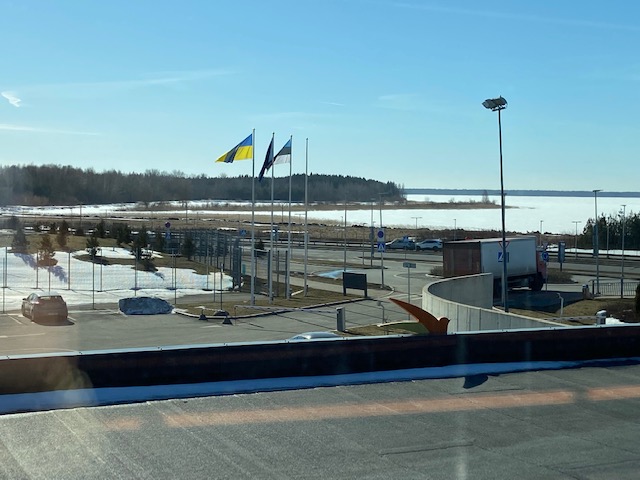
“…I am in Estonia. I know I sound a bit melodramatic but – I will never forget your words: “ If you need any help…I am not being polite, Nina, I mean it!” – and then “let me know you are coming and I will meet you at the airport”. My plan is to go wait in Estonia for another friend and then we will go to Portugal. // Hi Nina, I am gonna be melodramatic but I don’t care really – you almost made me cry:) I have been thinking all morning about you (and the last couple of days) and was just about to text you. I am so happy you made it! I have actually prepared everything for your stay in Belgrade (a separate apartment and so on)… I am happy that you are in Europe. Ivana “
The Frankfurt – Porto flight was stressful. Leaving Estonia I thought I was prepared to travel having paid for Internet access on my phone, but, unfortunately, I forgot to switch roaming on, so I had trouble filling in an obligatory questionnaire without Internet. I thought Lufthansa would not allow me on board and was almost hysterical.
Portugal
In Porto, I have been staying at a friend’s house, semi-abandoned, with no heating – no fun in March – so to write emails as part of my job search in search I went to a shopping centre. But there was sun, blossoming plants in the streets were wonderful. Porto is a beautiful city. It is 3, 5 km to the ocean from where I live, there is a bus, but I often walk all the way. Life is almost normal now. First weeks were constant news scrolling, tears and sleepless nights though.
“Life has so much beauty. And it is such a pity that we have to travel through this time of pain, sorrow, desperation, loss, fragmentation. War is just a terrible thing. And it attempts to divide us, whilst we need to keep ourselves united. And human. Russia is a wonderful country, with incredible richness, and wonderful people. My hope is that this doesn’t get lost whilst we walk through the complexities of the time being. My hope is that the weapons can get quite at the soonest, and a negotiation can start over again, and that an agreement can be laid out, and peace restored. Sadly, too many in power benefit from the current war. This makes it harder for Peace to find its way back to be restored. That’s the reality we sadly have to live with currently. Sending you a big Italian hug! Pietro”
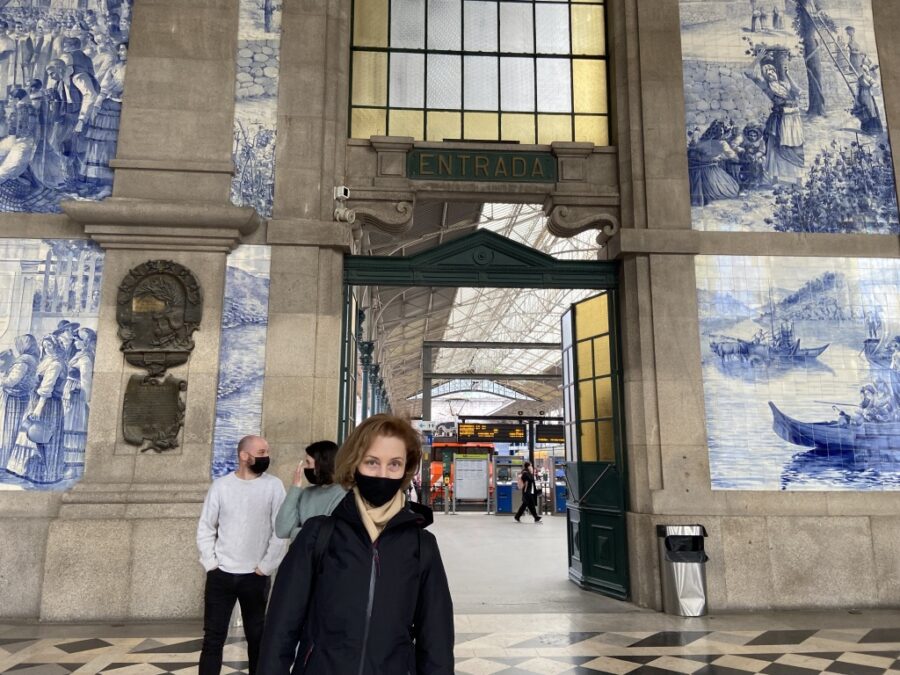
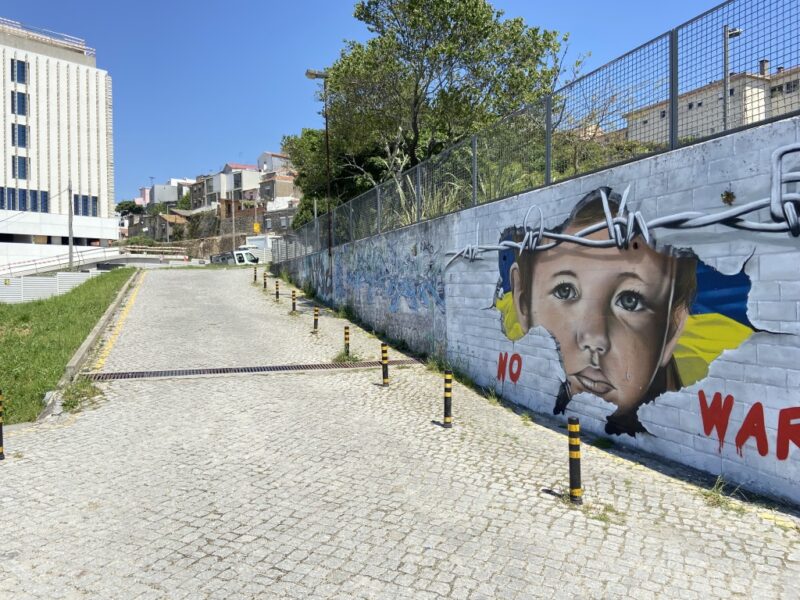
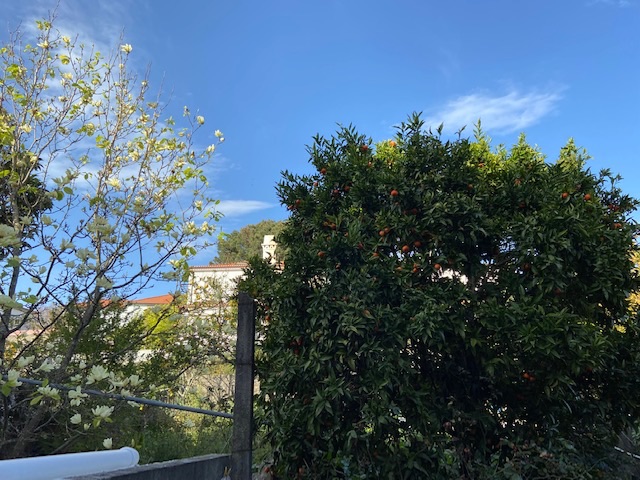
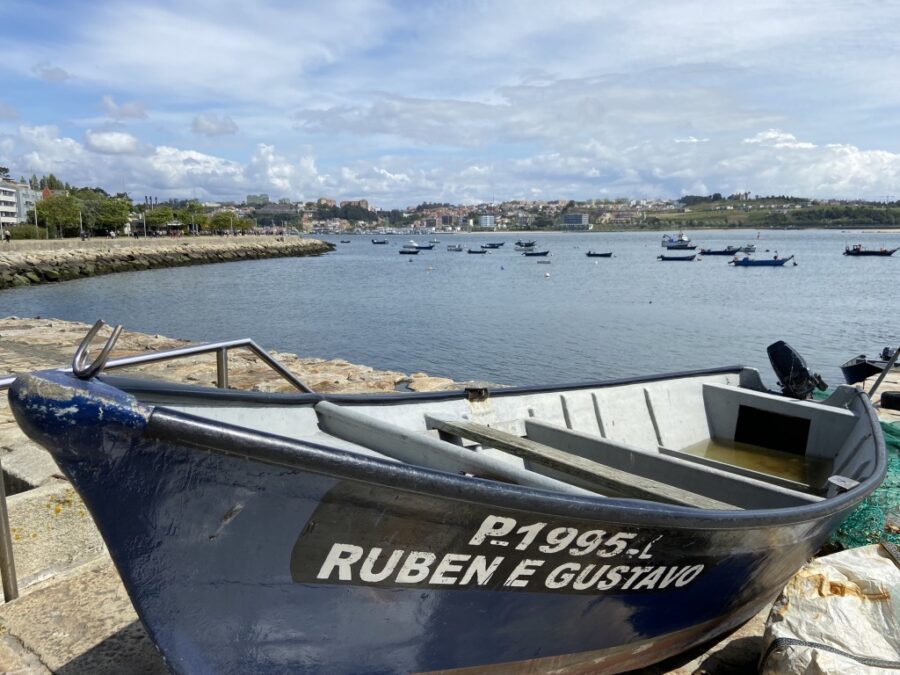
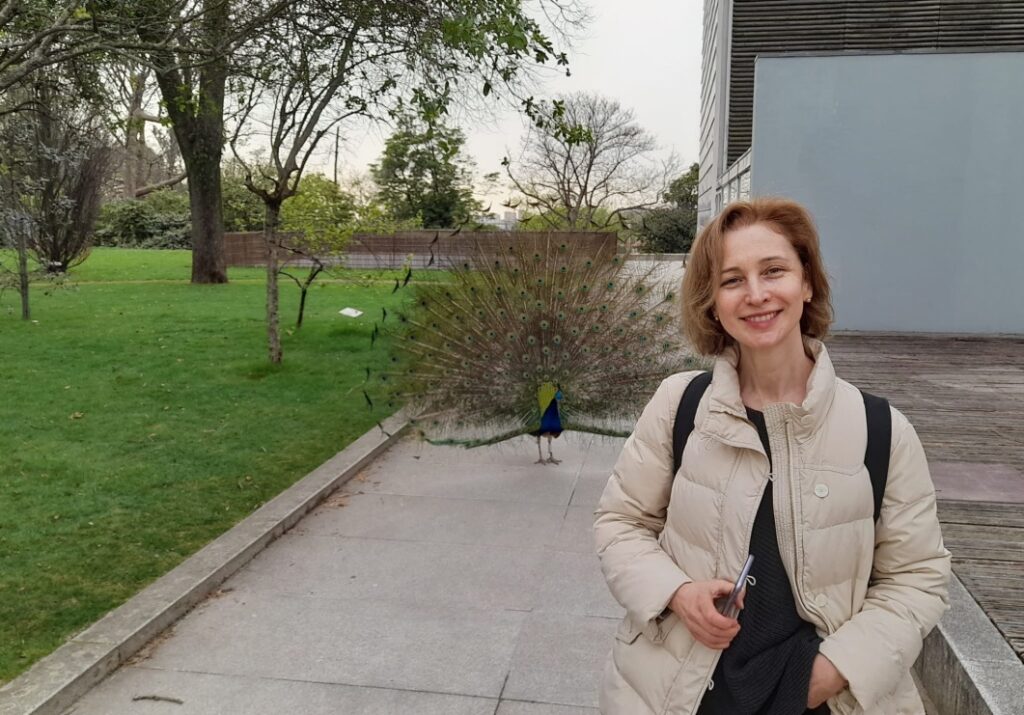
Volunteer work
My friend Elena knows some people here in Porto, and one of her former students introduced us to a recently formed volunteer group, “The Lighthouse”. Authorities of Porto offered space, and Russians living in Porto organized a free kindergarten, so that newly arrived Ukrainian mothers could leave kids for several hours.
Lena started teaching Portuguese, and I joined the group of those taking care of kids. I did not want to speak Russian to kids as many spoke Ukrainian, so I decided I’d play an English greengrocer. In my shop, I “sold” bananas, cherry tomatoes, carrots, grapes and little chocolates. To “buy”, kids had to ask politely in English and then say “thank you”. After several weeks, most families left Porto and went to other places. Now our “kindergarten” is open only when Lena’s students come to join her class.
I started my own free classes of English for Ukrainians, online, two times a week for beginners, plus “English for Business and Finance” on Saturdays. On my first day, I heard a Ukrainian boy reciting a tale, in Ukrainian. The tale was “Ryaba the Hen”, which every Russian child can tell as well. It is probably one of the things our peoples share, or used to share. Last Saturday, a boy with whom we played, said to me, in Russian: “Russia is a very bad country, you know. Russian soldiers came to Ukraine, so we had to leave Odessa.”
“The Lighthouse” functions as a support centre: whoever needs material help or information, gets it. Social networks is a good support. “From the first days of the war we all here, all the Russians, were restless and wanted to do something, then there came a chance to agree with local authorities about these two rooms“, one of my new friends recall. “You are the same refugee as us, only you don’t have the status,” – said one of the Ukrainian ladies, Tania from Zaporozhie, about us, Lena and me.
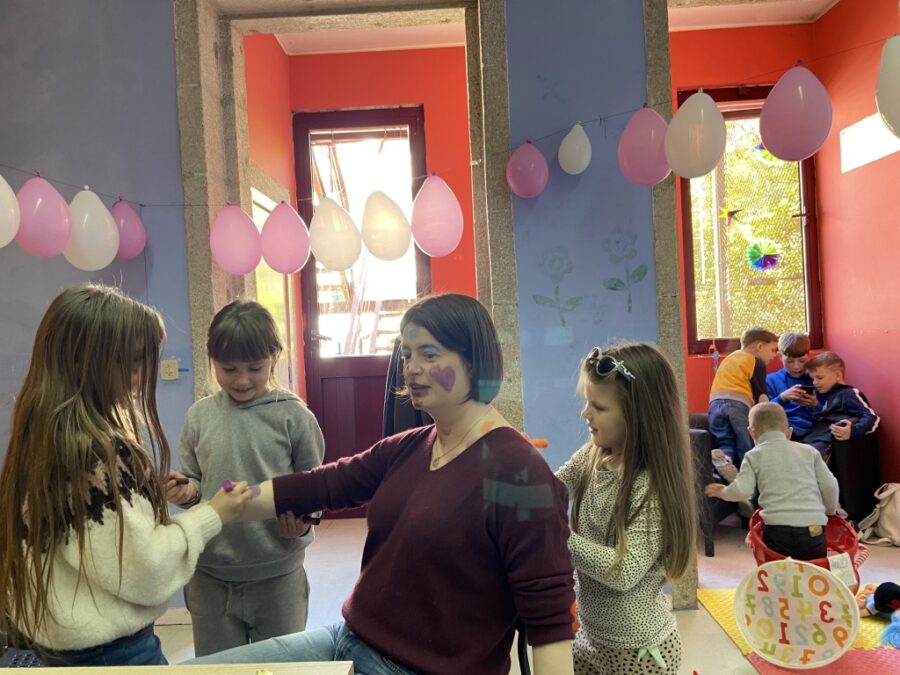
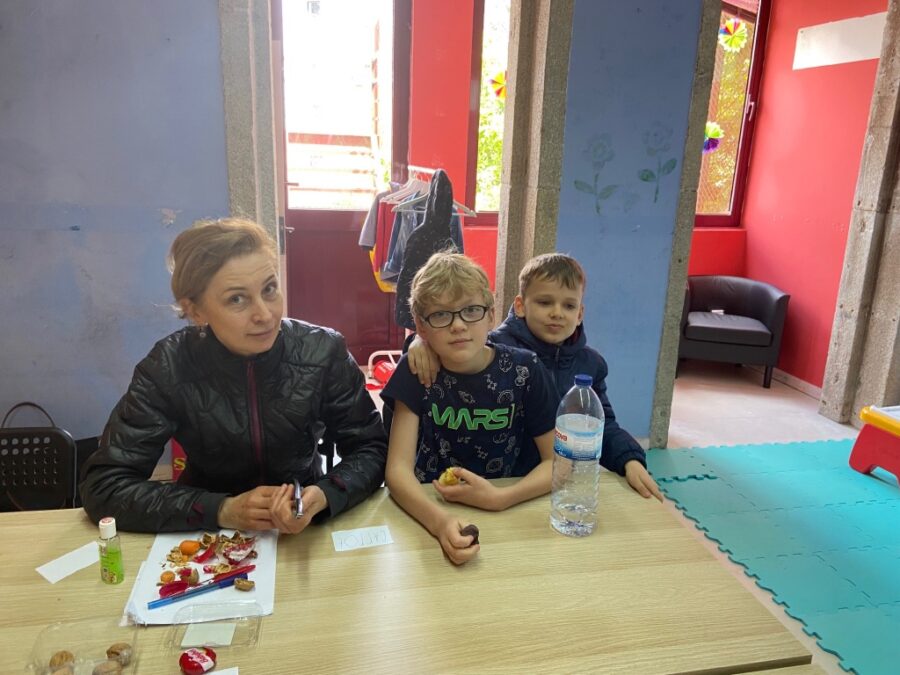
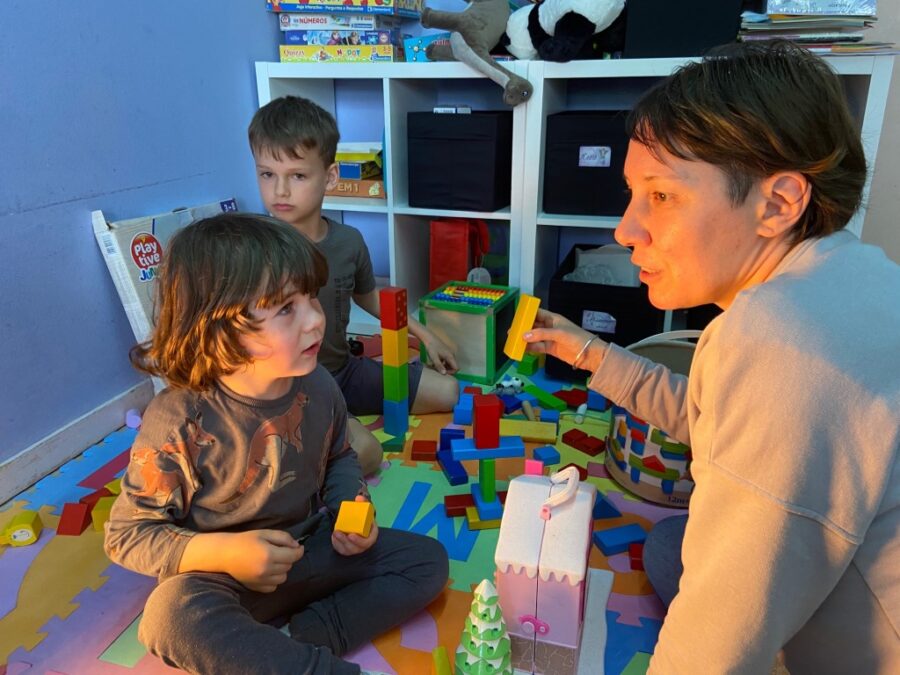
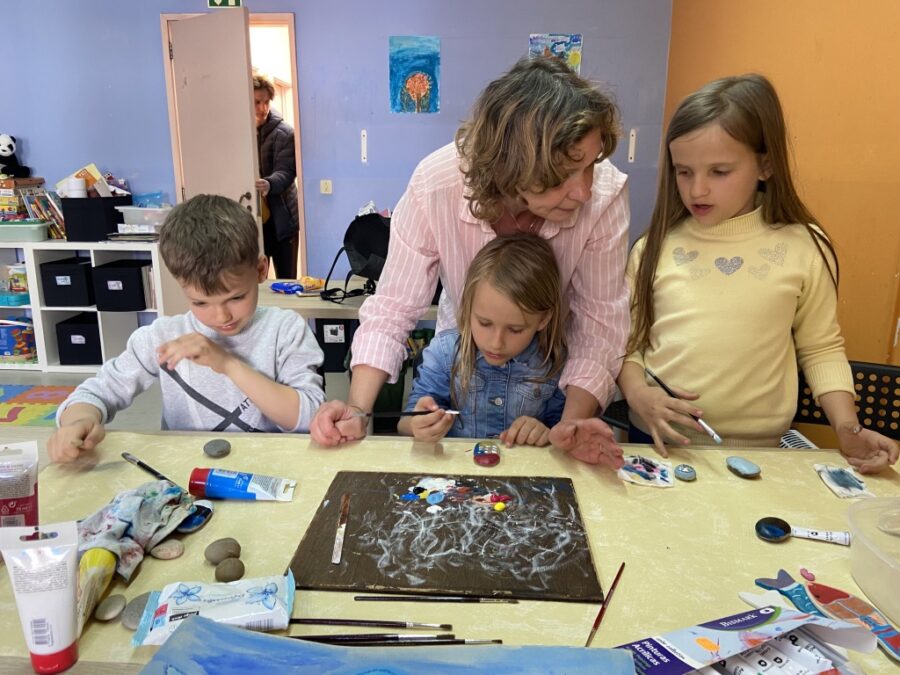
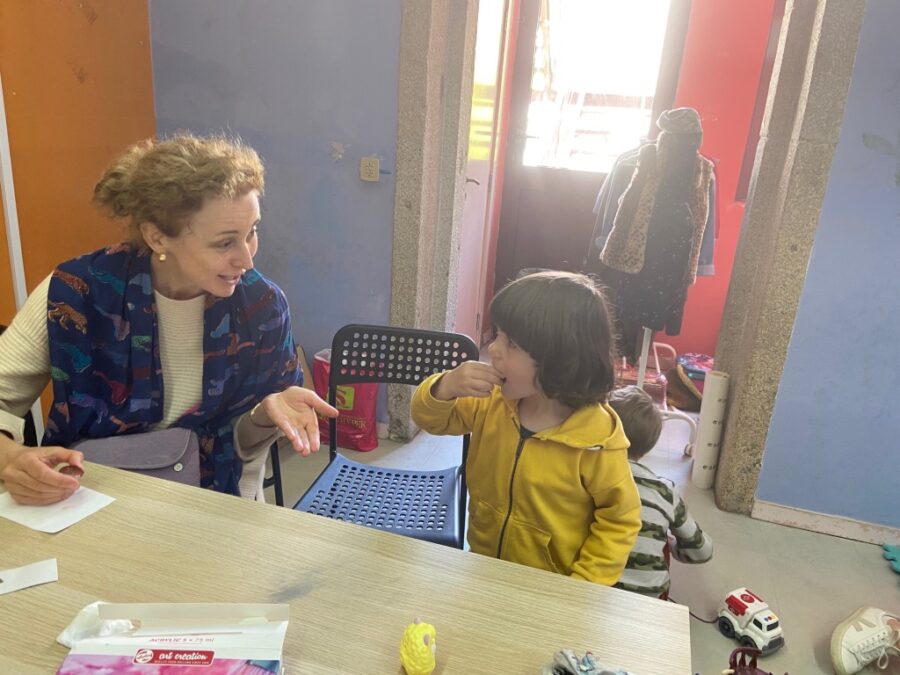
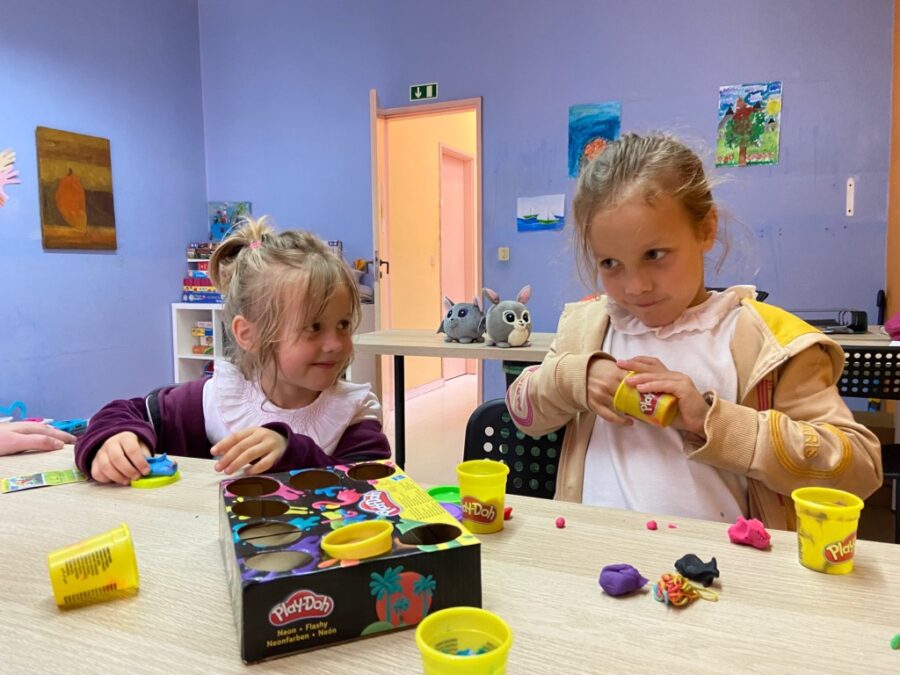
Russian Orthodox church in Porto
On Easter days, some prayers were recited in Ukrainian in the Russian orthodox church in Porto.
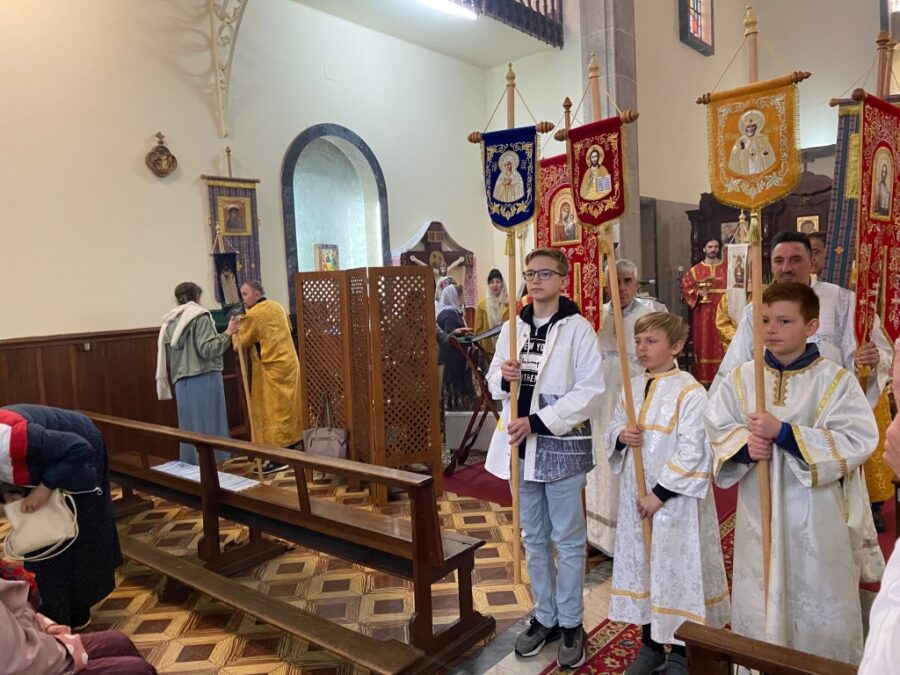
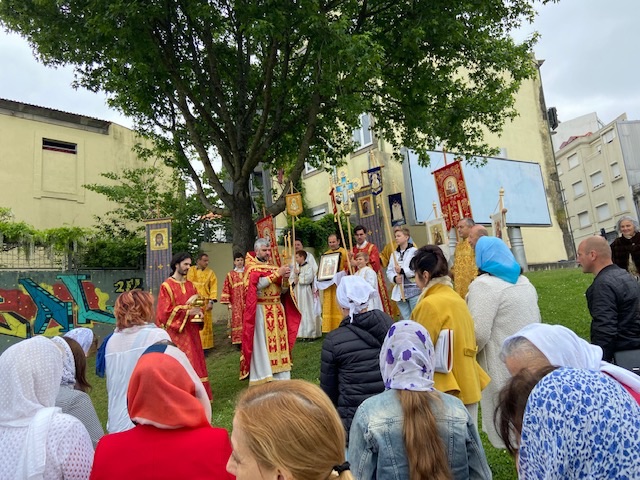
On May 9th, a wonderful concert took place in the church, with piano music, singing and readings of letters written in 1940 by two young people separated by that war. May 9th or May 8th, Victory day, day of tears, bitter memories and gratitude. My dad wrote to me: “Let us remember all our folks today”. My mom’s father was at the Japanese front, he met my very young grandma there. Dad’s farther, two brothers and three uncles (brothers of his mother) fought near Smolensk and then in Europe. Leo Wechsler, one of my uncles, perished near Mogilev in 1941. He was 20 years old.
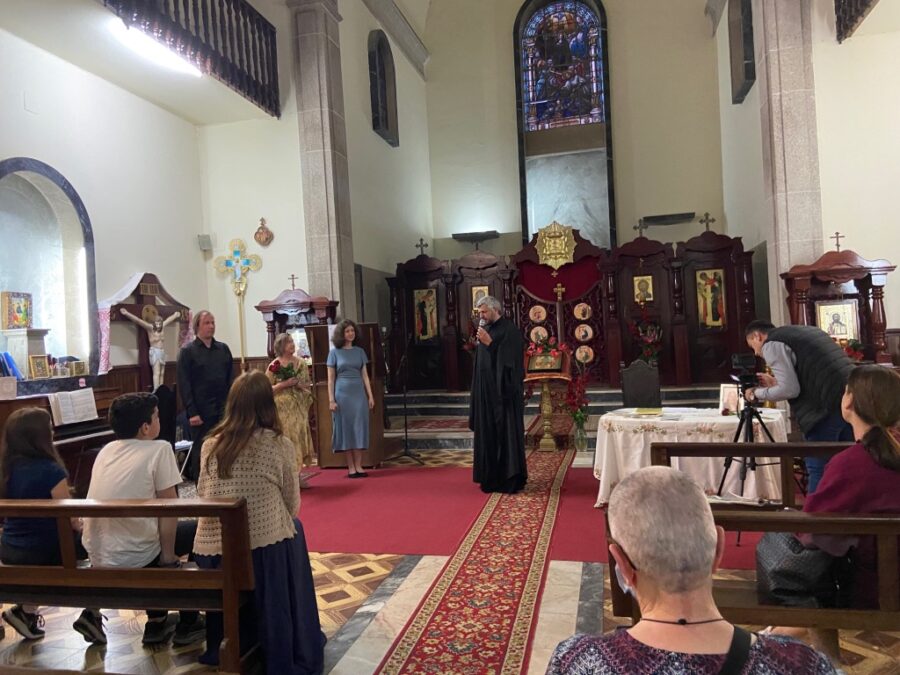
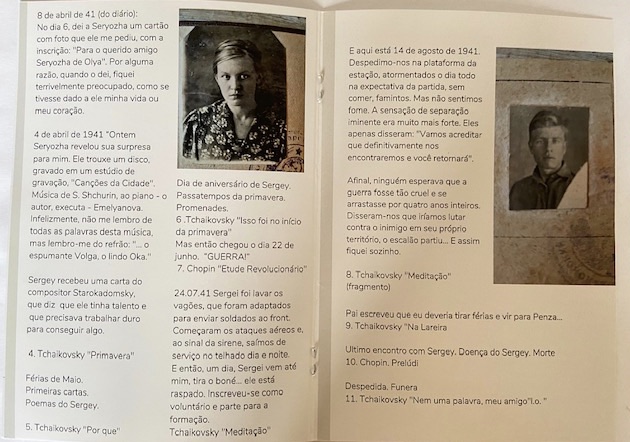
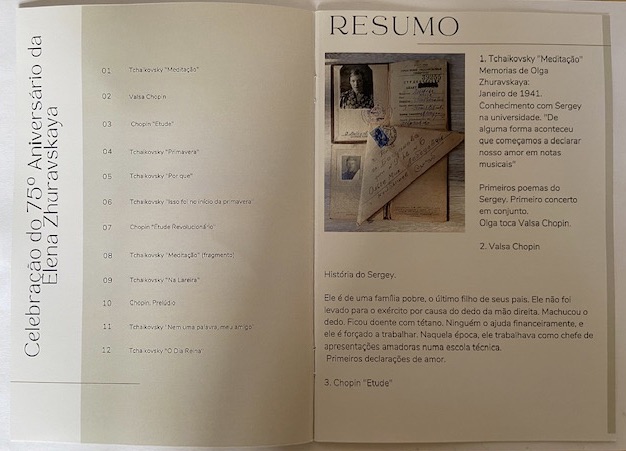
All seems peaceful and reasonable here in Porto, but at an official level and in Portuguese media the rhetoric is anti-Russian. Many banks refuse to open account to holders of Russian passports, this is my experience.
Africa
It seemed a miracle how after a short post in LinkedIn I received messages and calls from colleagues, and one of the conversations led to a part-time contract in April.
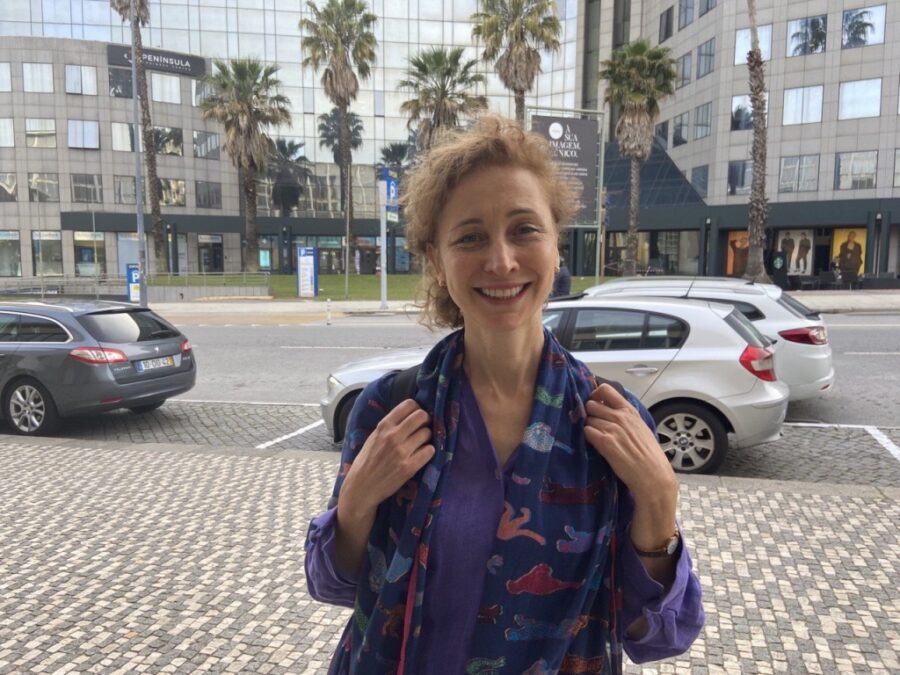
The project has to do with African financial institutions, women entrepreneurs, financial inclusion. It is interesting how Africa helps me out. I came to Portugal with Lena whom I met in Mozambique where I lived for almost a year in my student days. The friend who gave me shelter here in Porto is also from Russia but we also met in Mozambique.
Finally, my legalization documents were accepted for consideration by Immigration Services Office on May 25, the day celebrated since 1963 as Africa day.
Reading group
When the war started we were reading Nikolai Gogol, Russian writer, born and raised in Ukraine, adored for his early magical stories featuring freedom-loving Ukrainians, as well as for Petersburg stories describing the Russian nineteenth century life under autocracy in all its absurdity.
Appreciating Gogol’s humor, satire and poetic deviations throughout the text of “Dead Souls” we noted how often he says “those Russian”, “Russian peasants”, “Russian noblemen”… He was an observer who had came from a distant land, a small cheerful town in the south, to Saint-Petersburg, the capital of the Russian Empire. He is different, he is a “migrant”, he says he feels for Russia… what does he feel?
I saw Kirill Serebrenikov’s “Dead Souls” for the first time in 2012. The episode where Latvian actors sang “Rus! what is it that you want of me? what inconceivable bond lies hidden between us? Why do you gaze so, and why is everything in you turned towards me with eyes full of expectation? . .” – seemed so hilarious and so profound.
There is a video from a later version of Serebrennikov’s staging of “Dead Souls”, which I find absolutely stunning. A young man from Central Asia sings Gogol’s lines: “Rus! Rus! I see you, from my wondrous, beautiful distance I see you: it is poor, scattered, and comfortless in you…In you all is openly deserted and level; like dots, like specks, your low towns stick up inconspicuously amidst the plains; there is nothing to seduce or enchant the eye. But what inconceivable, mysterious force draws one to you?.. Why do the ears hear and ring unceasingly with your melancholy song, coursing through the whole length and breadth of you from sea to sea? What is in it, in this song? What calls, and weeps, and grips the heart?” Please watch this. Here
This young man is Gogol himself, isn’t he, an alien in Russia, good-natured and observing chap. So tragic, and alarming and bitter these words about Russia sound today, and looking at these young men’s faces as they are peering into a wondrous distance… it is breaking my heart.
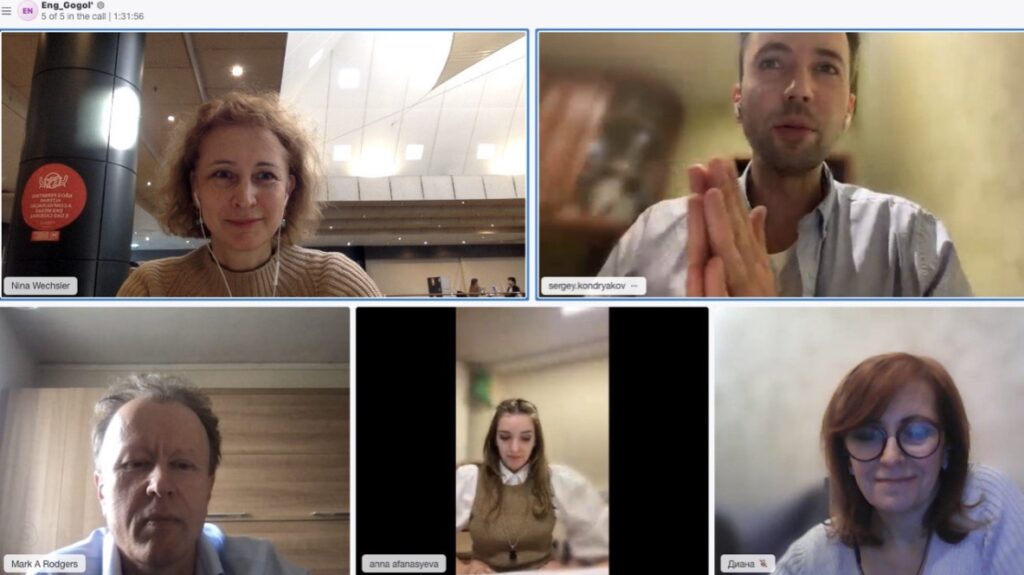
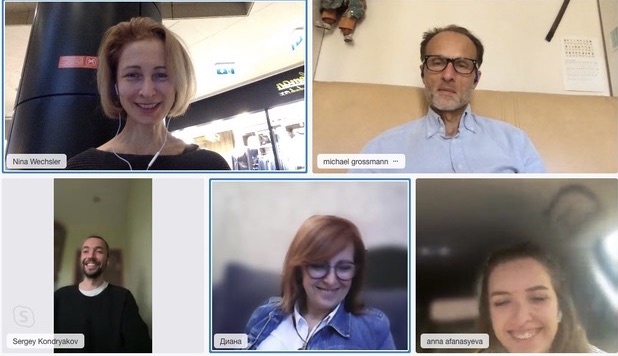
Since May, our small friendly group has been reading “The Twelve Chairs”, a masterpiece of Soviet literature created in 1927 by two young men from Odessa, Ilya Ilf and Evgenii Petrov.
“For where your treasure is, there your heart will be also”
I read that The National Gallery in the UK renamed Edgar Degas painting “Russian Dancers” to “Ukrainian dancers” because the girls on the painting, ballerinas of Dyagilev’s “Russian seasons”, have blue and yellow flowers woven in their hair.
My European friend has renamed music albums of Russian music, which his recording studio produced decades ago, music written by Russian composers and played by Russian musicians. The word “Russian” is now removed from the titles of the Internet page featuring his work of 30 odd years. Is this “going with the flow” – let us just cancel everything that has the word “Russian” in it?
Oh no.
Hip-hop artist Oxxxymiron, born in Russia, living in the UK since he was 15, sings in the soundtrack to “The Innermost Man”, 2020 film about writer Andrei Platonov: “All this is mixed up in me – Gog and Magog, a moat and a trench… But I love this <country> so much, as strange as it may seem to you…” Roma Liberov, the film maker, decided not to use the verion with Oxxxymiron’s “North Coutry” when the film was going to be released, it seemed too much. Now it seems so up-to-date.
It is all mixed up in me. I am here in Porto but I am there in Moscow, with my friends; in Smolensk, with my parents; in Tobolsk (Siberia), Teplik (Ukraine), Perm (Ural), with grandparents. In this film trailer I am a lady from the USSR of the 1970s, one of many Samizdat contributors, descreetly re-typing Platonov’s works after her long day in a research institute. She glances though the window and sees the tricolour of free 1990s Russia – and it takes her breath away.
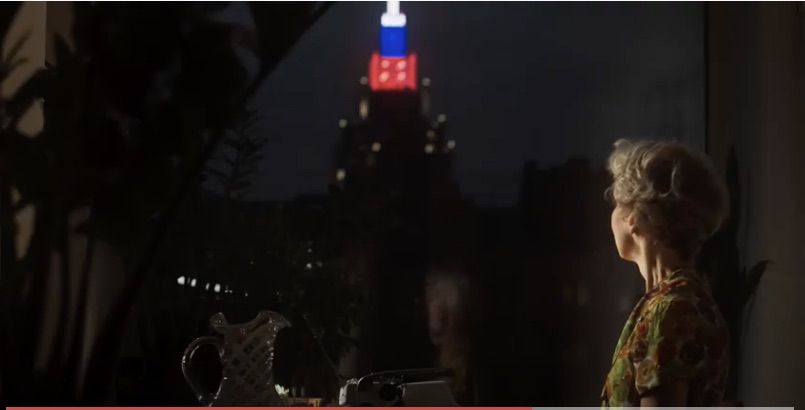
Another art work I would like to draw attention to is a documentary opera “Russia : Today” by composer Eugene Birman. “Employing verbatim as a method, the opera explores the phenomenon of voice as an instrument and as a means of expression, both in musical and social realms.” My daughter is the producer, I admire what she has been doing for this project and feel very proud. The world premier was in Narva in October 2021, before the war. I hope to see the opera staged in London and in other cities of the world.
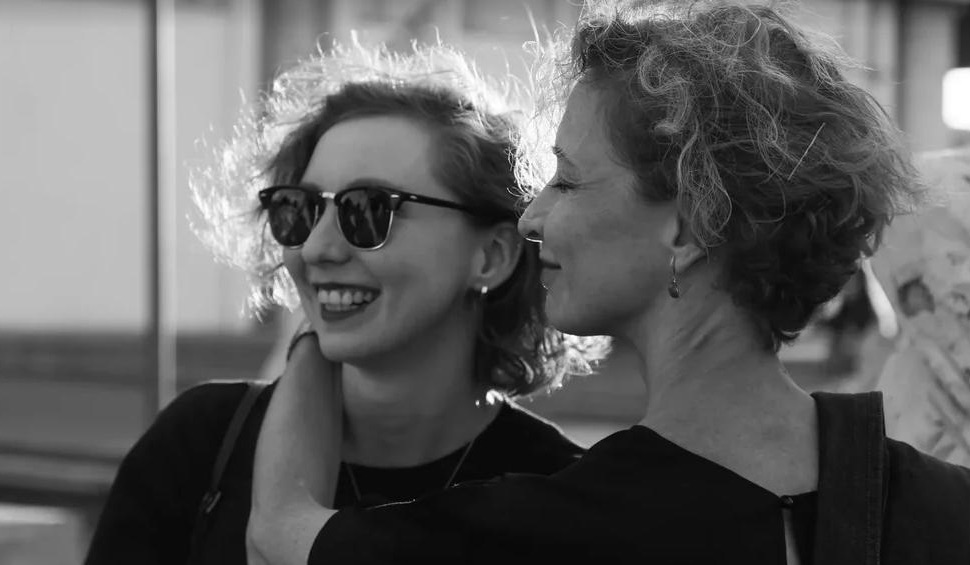
I sorely miss hugging my parents and my – independent, but still- children, I miss my beautiful cosy Moscow flat, and our Sparrow Hills.
Yet there is life to live. “You will manage, you will thrive. Portugal will become your second mother country, ” says Paola, my first friend in Porto. “It is all in this book”, she said pointing at the Bible, “the war will end, but later there will be another war, unfortunately.” “You will speak Portuguese well, and you will live a happy life because you have will – vontade – and a big heart – coraçaõ bom.” We will see. Vamos ver.
